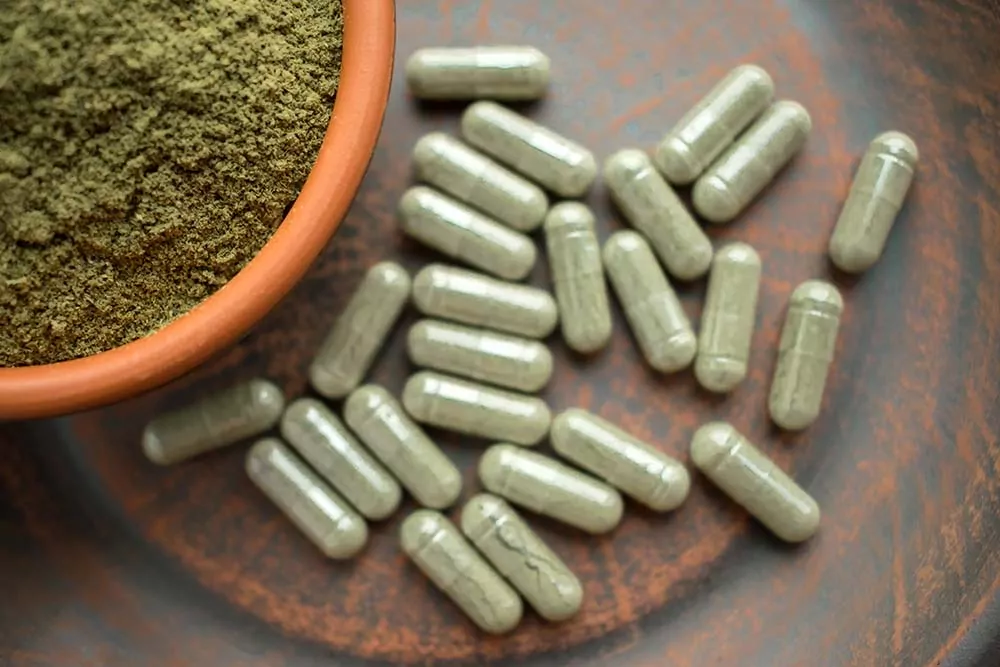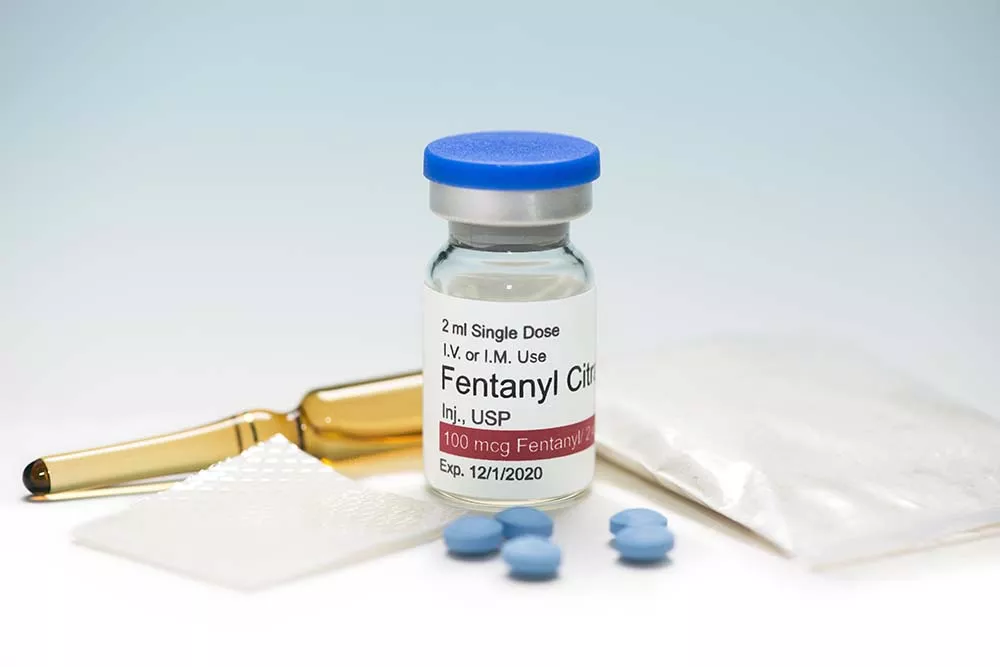Kratom is a Southeast Asian tropical evergreen tree (Mitragyna speciosa) with leaves containing chemicals with several psychotropics (mind-altering) effects, including flavonoids, polyphenols, and different glycosides, and are considered by some as an opioid replacement. The main component, mitragynine, varies in intensity according to the area and season of growth and is considered to be nearly 13 times stronger than morphine. And the kratom that’s grown in Southeast Asia, has the greatest mitragynine concentration.
According to the National Institute on Drug Abuse (NIDA), kratom has effects similar to opioids and stimulants, and these effects are dose-dependent. Kratom produces sedative effects in large doses and stimulant effects in smaller doses.
Because of easy access via the Internet and kratom’s principal alkaloid component, mitragynine not yet been classified as a restricted substance, unlike its derivative 7-hydroxy-mitragynine, which is a controlled substance in some countries outside the United States, recreational use of kratom has expanded widely across Europe and the United States.
Even though the FDA has not approved kratom for any medical use, many use it as a form of self-medication to relieve chronic pain and opioid withdrawals. While some use kratom for recreation purposes, an increasing number of people are turning to it as a substitute for heroin and opioid misuse.
However, no well-controlled experimental trials have been conducted to date to demonstrate kratom’s usefulness for opioid withdrawal or any other health conditions. There has also been little investigation into how kratom interacts with other medications.
On the other hand, medical experts have identified many side effects of kratom use, including:
For many years in Southeast Asia, kratom has been sold as a dietary supplement, an opium substitute, and a fatigue treatment.
The two main chemicals in kratom leaves interact with opioid receptors in the brain similarly to most prescription opioids. Kratom effects activate within 5-15 minutes and last for 2-5 hours after being consumed. Kratom may produce effects similar to opioid medications at higher dose, including effects such as:
The stimulant-like effects of kratom at low doses can be experienced in as little as 10 minutes and can last anywhere from 60 to 90 minutes. While most individuals report that these effects are pleasant, some report feeling anxious and agitated. Kratom’s main stimulant-like effects are similar to amphetamine but less powerful and include the following:
The effects of kratom vary depending on the person, dosage, and method of ingestion. There is limited scientific information on the effects of kratom, and no controlled clinical trials have been performed to assess its safety in humans. The majority of what we know about this substance presently comes from anecdotal stories from users, doctors, and animal trials.
While kratom is often promoted to combat opioid use disorder, the substance itself is extremely addictive. Kratom addiction may develop in as little as six months, causing symptoms comparable to opioid withdrawal.
Regular kratom consumers are more prone to experience withdrawal symptoms as they develop a dependence and tolerance for the substance over time. The following are some of the most common physical withdrawal symptoms:
Psychological withdrawal symptoms may include:
Post-acute withdrawal syndrome (PAWS) can occur after heavy regular use. Anxiety, depression, and insomnia may be experienced in waves for individuals struggling with PAWS and could last for weeks or months.

At higher doses, kratom can cause an individual to overdose. There have been numerous fatalities involving kratom, but most of these deaths also included other substances. According to the FDA reports, several of the kratom-related deaths resulted from adulterated products or combined use of kratom with other potent substances, such as benzodiazepines, alcohol, and illicit drugs.
Addiction can be caused by a variety of factors, including surroundings, experiences, and genetics. Certain hereditary characteristics can raise your chances of developing an addiction when you take an addictive substance. And regular substance use alters the chemistry of your brain, influencing how you perceive pleasure. This function makes it tough to stop consuming once you start.
The signs and symptoms of addiction are generally the same regardless of the substance misused.
The following are some common signs:
Individuals who wish to stop using kratom after prolonged regular use are highly advised to seek assistance and guidance from physicians or addiction specialists to minimize the risk of relapse and withdrawal symptoms.
Detoxification is the first step in treating kratom addiction. Since kratom can cause adverse reactions during abrupt cessation, individuals are highly recommended to detox under the supervision and guidance of physicians or addiction specialists to reduce the risks involved. A medical team will help progressively reduce your kratom dose to lessen cravings and withdrawal symptoms during detox.
According to the Substance Abuse and Mental Health Services Administration (SAMHSA), kratom detox consists of three main steps:
While the detox procedure can help resolve the physical aspect of kratom withdrawal, ongoing outpatient addiction treatment is required to address longer-term physical and psychological aspects.
Effective treatment for kratom addiction involves medical and therapeutic approaches in a structured long-term recovery program. The long-term treatment approach includes therapy and counseling in an inpatient or outpatient setting.
Relapse is a risk in every chronic medical condition, including the addiction recovery process. Therefore, learning techniques for relapse prevention and management is an important part of long-term recovery. The following measures can help you or a loved one reduce the risk of relapse in the long term:
If you are seeking help with your loved one’s addiction, contact us today or complete our quick contact form below, to speak with an addiction treatment specialist.
If you need help with a drug or alcohol addiction, we are here to help you build your confidence and momentum towards the future you want. We provide treatment services for adults with alcohol, opioid, and other substance use disorders. We are currently located in Louisiana, Massachusetts, New Jersey, North Carolina, Ohio, Texas, and Washington.
 All About Kratom
All About Kratom
 What You Need to Know About Fentanyl
What You Need to Know About Fentanyl
 How Long Do Suboxone Withdrawals Last?
How Long Do Suboxone Withdrawals Last?